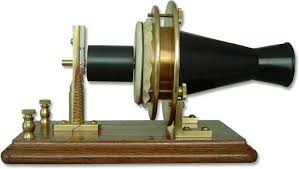Carnegie returned to Pittsburgh and opened his own steel company, and bragged about how cheaply he could produce steel. He made the company more efficient by buying coal mines, limestone quarries and iron fields to save money by not having to pay other companies for the raw materials, enabling many businesses and industries to become bigger.
Wednesday, January 30, 2013
Andrew Carnegie
Carnegie returned to Pittsburgh and opened his own steel company, and bragged about how cheaply he could produce steel. He made the company more efficient by buying coal mines, limestone quarries and iron fields to save money by not having to pay other companies for the raw materials, enabling many businesses and industries to become bigger.
Big Business
Most businesses were small partnerships before the Civil War, but by 1900, larger businesses began to take over the economy. Corporations are what made this possible, organizations owned by many people, but treated as one person. The corporations were able to make contracts, sue people, be sued, own property, and pay taxes, just like an actual person. The corporation owners own stocks in the business, and are so called stockholders. this system allowed the corporation to make money, and the financial risk was divided between more people.
There are two types of costs which businesses have to pay, fixed costs and operating costs. the corporations have to pay the fixed costs no matter whether it is operating or not, and operating costs are only paid when the business is in operation. These wages are similar to the ones that small businesses had to pay, but the were opposites, the Fixed cost of a small business is small while the operating costs were high, making it less expensive to close down a small business, while big businesses had higher fixed costs and lower Operating costs, almost making them recession-proof. This advantage made the bigger businesses more efficient, while small businesses were slowly pushed out.
There are two types of costs which businesses have to pay, fixed costs and operating costs. the corporations have to pay the fixed costs no matter whether it is operating or not, and operating costs are only paid when the business is in operation. These wages are similar to the ones that small businesses had to pay, but the were opposites, the Fixed cost of a small business is small while the operating costs were high, making it less expensive to close down a small business, while big businesses had higher fixed costs and lower Operating costs, almost making them recession-proof. This advantage made the bigger businesses more efficient, while small businesses were slowly pushed out.
Friday, January 25, 2013
Railroads
Also helping to build the Railroad was the Central Pacific Workers, headed East from Sacramento, California, and led by Leland Stanford, Charley Crocker, Mark Hopkins, and Collis
P. Huntington. Their workers were mostly Chinese immigrants. The two companies met in Promontory Summit, Utah, where the last spike, made of Gold, was laid, to finish the Transcontinental Railroad.
Thursday, January 24, 2013
New Inventions
It is a great time for inventing in America. There are many inventors creating inventions they believe will change the future. Starting at the top, Mr. Alexander Graham Bell has invented what he calls the telephone, a device that can transport sounds over distances, "like talking through a telegraph" as he explained it to his assistant, Thomas Watson. Bell experimented with sound transmission through electrical current.

Also Thomas Alva Edison has rolled out his perfection of the Light Bulb. the famed inventor of the Phonograph is also known for improving the telegraph. And two brothers believed they have found a way to make people fly. The Wright brothers, Orville and Wilbur, have invented a flying machine to be tested at Kitty Hawk, North Carolina.
Also Thomas Alva Edison has rolled out his perfection of the Light Bulb. the famed inventor of the Phonograph is also known for improving the telegraph. And two brothers believed they have found a way to make people fly. The Wright brothers, Orville and Wilbur, have invented a flying machine to be tested at Kitty Hawk, North Carolina.
Subscribe to:
Posts (Atom)
